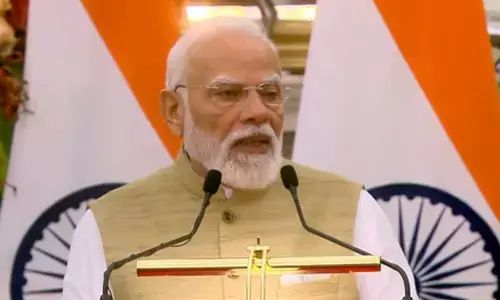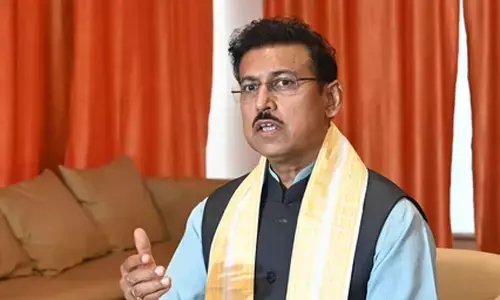Social Consciousness: Vedanta for the Young

Exploring the ability of young minds to grasp the profound concepts of Vedanta through rational inquiry and thought experiments. Vedanta offers a unique perspective, encouraging clear thinking and freedom from preconceived beliefs
In my present visit to the USA, I had a pleasant experience which can be shared. This is about whether young students in the age group of ten or twelve can understand Vedanta. The minds of most adults are already filled with various ideas on religion. Some have heard the talks of different Swamijis, or they know about the upasana of Lalita or some other deity, and they feel disturbed or reluctant if someone talks about a rational enquiry into the nature of the highest reality, which all religions call God. I find it much easier to tell the young about the thought experiments made by our ancient thinkers in knowing this truth.
We can pose the problem straight away. We see the world and examine it with our sense organs and mind. The mind has the ability to process the signals received from the five sense organs, make decisions, recall them when wanted in order to take further decisions. If we cannot know with our bare senses, we take the help of gadgets developed by science.
If we assume that there is some entity called God and if we wish to know its nature, the sense organs are of no use. If God is known by the senses, he would be another object. Any object which is observed is inferior to the observer. Hence, we have to think of another way.
A wise option is that we have to observe the observer. The human being has to examine himself. He has to examine his own laboratory and equipment. What all he has is a physical body, there is an energy body or prana, there is a mind, and there is a sense of self, the notion of ‘I’. this notion of ‘I’ guides him or motivates him in all worldly actions. But this ‘I’ is of no use in investigating our own nature. The faculty of thinking is more useful. What we call this ‘self’ is an infinitesimal entity along with many other entities of innumerable species. All these species have intelligence, but their sense organs have different capabilities. Intelligence is the same in all beings though the bodies are different.
Thus, intelligence, or consciousness as it is called nowadays is a universally existing thing. Existence is another universally present factor. When I say, ‘I exist’, there is a component of consciousness and also existence. These two are pervading the whole universe and galaxies we can think of. Perhaps by intuition, the Indian thinkers said that there are multiple universes which arise and perish, and the time scales are in billions of years. Consciousness and existence are simultaneously present all over. Thus, they said that one irrefutable reality is the infinitely existing consciousness. This is totally different from the god we talk about in religion. This is different from Vishnu, Shiva or any other god. They called it Brahman, because we need a name to refer to it. This is not a person; it is an entity beyond gender. It is referred to as It, with a capital ‘I’.
This is a small sample of the thought experiment discussed in our Upanishads. The experiment extends to analyzing the components of the body – the gross body with blood, flesh and bones as against the subtle body, the mind which are common to all beings, from mosquitoes to dinosaurs. These are the transformations of the five elements earth, water, fire, air and space. All the elements of Mendeleev’s table are collected into the above groups. There is an order in the whole cosmos, which we can call the cosmic being. This is different from the infinite Brahman. Vedanta says that all the god forms are visualized in this cosmic being. All religious traditions are accepted as useful ways to discipline a person. A disciplined mind will then be able to investigate the truth.
Why bother a young mind with all this? It is to dispel all confused thinking and become free from all types of beliefs and stories. We can enjoy all stories, get the message if any, because they all fall in place if we have a rational approach. That is what our thinkers handed over to us.
(The writer is a former DGP, Andhra Pradesh)




